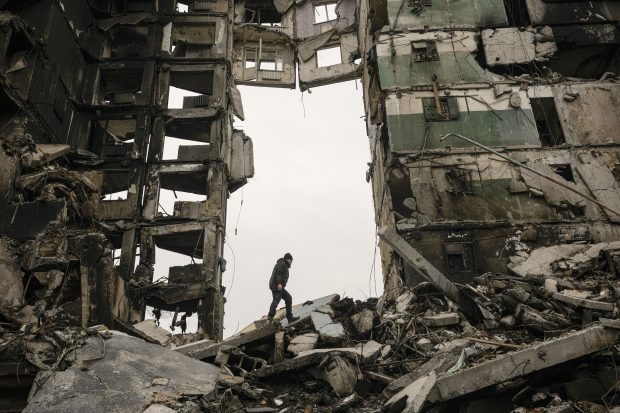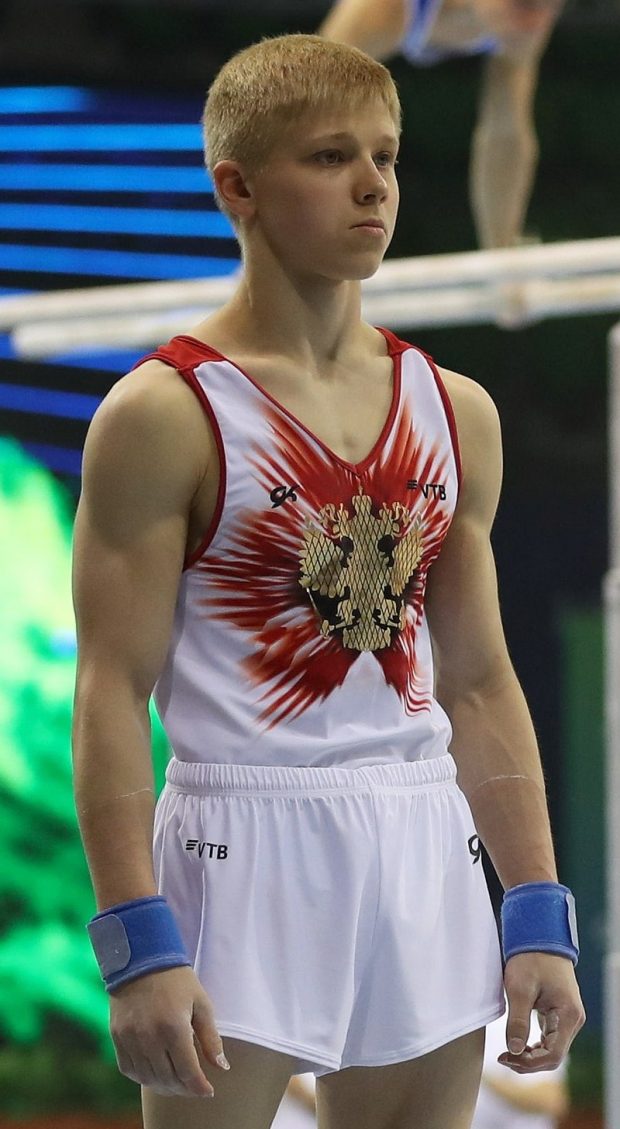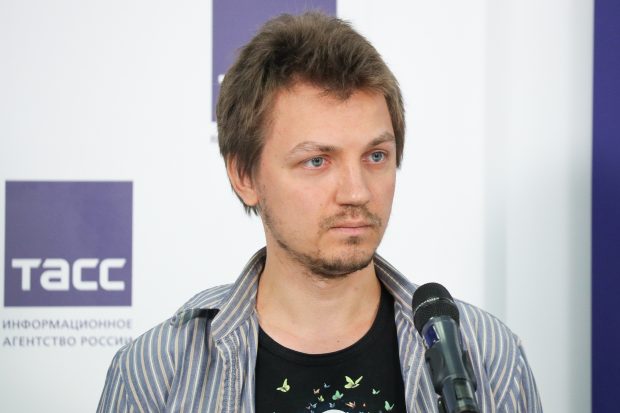러시아에 대한 ‘문화적’ 보이콧은 정당한가?

*아시아엔 해외필진 기고문의 한글번역본과 원문을 함께 게재합니다.
[아시아엔=라훌 아이자즈 파키스탄 영화감독, 작가] 수년 동안 수면 아래 있던 분쟁이 드디어 폭발했다. 러시아-우크라이나 전쟁, 아니 ‘러시아의 우크라이나 침공’ 말이다. 그러나 이 글에서는 이러한 상황을 초래한 정치적인 상황을 파헤치거나, 갈등의 잠재적인 결과 또는 해결책을 다루진 않을 것이다. 대신 우리가 마주하고 있는 불필요하고 부당한 처사에 대해 초점을 맞출 것이다.
우크라이나 사태 이후 많은 러시아 예술가와 영화제작자들은 일자리를 잃거나 당국으로부터의 위협을 받을 수 있음에도 러시아의 침공을 공개적으로 비판해왔다. 실제로 수많은 러시아인들이 정부에 항의하다가 체포되기도 했다.
그러나 이같은 움직임에도 불구하고 스코틀랜드 ‘글래스고 국제영화제’는 러시아 출신 키릴 소콜로프(Kirill Sokolov) 감독의 <No Looking Back>과 라도 크바타(Lado Kvataniya) 감독의 <The Execution>을 받아들이지 않았다. 영화제 측은 이 같은 결정을 내리며 “제작자들의 정치적 견해에 대한 문제가 아닌 러시아 국고 지원을 받는 작품이라는 것이 문제”라는 내용의 성명을 발표했다.

이와 비슷하면서도 다른 사례가 지난 3월초 카타르에서 열린 기계체조월드컵에서도 있었다. 대회 동메달리스트이기도 한 러시아의 체조선수 이반 쿨리아크(Ivan Kuliak)가 전쟁을 지지하는 ‘Z’ 표식을 유니폼에 달고 등장한 것이다. 그 직후 국제체조연맹은 그를 징계위원회에 회부할 것이라 밝혔다.
한 쪽은 전쟁을 비판해 불이익을 받았고, 한 쪽은 전쟁을 지지해 불이익을 받았다. 정반대되는 두 사건은 이와 관련된 논쟁을 더욱 복잡하게 만들었다. 쿨리아크의 행동과 결과를 바라보면, 전 세계가 러시아를 지지하는 어떠한 행위조차 꺼리는 것은 당연해 보인다. 그러나 쿨리아크의 사례는 자동반사적인(knee-jerk reaction) 당연한 결과였다.
현실적으로 러시아의 문화예술가나 운동선수 중 침략을 지지하는 이가 단 한 명도 없을 수는 없다. 그렇다고 러시아에 대한 문화적인 보이콧을 선언하는 것은 과연 정당한가? 그렇지 않다면 선택적인 보이콧은 과연 가능한 일일까?
필자의 모국 파키스탄은 국력이 더 강한 이웃 국가 인도와 70여년 동안 갈등을 겪어왔다. 러시아-우크라이나, 인도-파키스탄의 사례를 동일선상에 비교하는 것은 다소 무리가 있을 수도 있다. 필자는 그러나 국가간 정치적, 군사적 분쟁이 문화적 불매운동으로 이어지며, 문화적 보이콧은 또다른 형태의 폭력에 불과하다는 것을 강조하고 싶다.
한번 생각해 보자. 선량한 국민이라 할지라도 그의 모국이 저지른 범죄에 대한 대가를 치러야만 하는가? 만약 그렇다면, 필자를 포함한 파키스탄 전 국민은 어느 곳에서도 환영받지 못할 것이다.
국가에 대한 보이콧은 국민 모두를 코너로 몰아넣는다
비록 파키스탄 정부와 군부가 자국민을 대상으로 한 범죄를 자행했을 지라도 국가에 대한 보이콧은 가해의 주체가 누구인지에 대해 명확히 구분하지 않기에 한 국가의 국민 모두를 코너로 몰아넣는 결과를 초래한다. 전 세계에서 전쟁을 벌여온 미국과 팔레스타인-이스라엘의 분쟁 사례는 더 좋은 사례가 될 것이다.
그들을 고립시키는 것이 과연 누구한테 도움이 될까? 예술인, 체육인 등 민간 문화사절들과 대화를 통해 서로를 이해하고 변화를 이끌어 내는 것이 더 도움이 되지 않을까?
9.11 테러 이후 세계는 파키스탄과 아프간 등 이슬람 국가에 거주하는 이들을 잠재적인 범죄자로 여겼다. 파키스탄 여권을 소지한 것만으로도 죄를 지은 것이나 다름없었다. 지금 세상은 러시아 여권을 소지하는 것 자체를 범죄로 여기며, 또 그들을 처벌할 방안을 모색하고 있다.

넷플릭스도 러시아 제재에 동참했으며, 할리우드도 러시아 영화를 개봉하지 않을 방안을 모색하고 있다. 전세계 문화산업계 또한 침략전쟁을 끝내기 위한 것이라는 명분으로 러시아를 근본적으로 고립시키고 있다. 일견 훌륭한 전략처럼 보이지만, 이러한 행위는 아무런 죄를 짓지 않았으며 심지어 범죄에 반대하는 사람들마저 고립시킬 수 있다. 모국의 침략 반대 탄원서에 서명한 소콜로프 감독이 설명했듯, 그의 블랙코미디에선 정치적 동력이라곤 좀처럼 찾아볼 수 없다.
프로파간다 강요하지 않는 영화, 보이콧할 이유가 있을까?
영화가 프로파간다를 강요하지 않는다면, 그 작품을 보이콧할 이유 또한 없다. 물론 러시아의 작품들이 국가의 지원을 받고 있는다는 것에 대한 우려는 있을 수 있다. <뉴욕타임스>의 알렉스 마샬은 이와 관련된 기사를 작성한 바 있다. 소콜로프 감독 또한 “러시아 영화의 약 99%가 국가 기금에 의존하고 있으며, 러시아에선 정부 지원 없이 영화를 제작하는 것이 매우 어렵다”고 밝혔다. 흥미로운 것은 러시아가 국가차원에서 지원하는 영화에는 푸틴 정부를 비판하는 작품들도 포함돼 있다는 점이다.
작금의 문화적 보이콧에 따라 러시아 정부 지원을 받는 거의 모든 영화들 또한 제작이 취소되고 있다. 러시아의 문화가 고립되고 있으며, 그 피해가 문화예술가들에게 고스란히 전가되고 있다. 이는 아무런 죄를 짓지 않았는데도 파키스탄과 아프가니스탄 출신이란 이유로 고립됐던 이들을 연상시킨다.
지금 우리는 러시아 예술가들이 국가 지원을 받아 작품을 만든다고 할지라도 그들이 정부에 대해 건전히 비판할 수 있는 토대를 마련하도록 지원해야 한다. 러시아인이라는 이유만으로 (그들은) 침략전쟁을 지지할 것이며, (러시아인은) 고립돼야만 한다고 생각한다면 그것은 매우 그릇된 생각이다. 지금 우리는 러시아의 민간 문화사절들을 보이콧할 것이 아니라, 그들의 모국이 저지른 범죄에 대해 당당히 소리낼 수 있도록 도와야만 한다.
Why a cultural boycott of Russia may not be the solution
By Rahul Aijaz
2022 has brought about an explosion of a conflict that has been boiling for many years ? the Russia-Ukraine War, or as it should rather be phrased ‘the Russian invasion of Ukraine’. But it would be unfair for me to delve into the political circumstances that led to this or analyze the potential outcomes or solutions of this conflict as I am not qualified to do so. In this piece, I would rather focus on how we, the world as bystanders and observers, are reacting to it in ways that seems unjust and unnecessary.
Many Russian artists and filmmakers have been openly criticizing the invasion of Ukraine, despite the threat of losing their jobs and being reprimanded. In fact, many Russians have already been arrested for protesting against their government’s actions.
Meanwhile, instances like the Glasgow Film Festival in Scotland dropping two Russian films – Kirill Sokolov’s No Looking Back and Lado Kvataniya’s The Execution – from their edition pose new concerns. The festival released a statement citing the films’ state funding as the reason and “not a reflection on the views or opinions of the makers of these films.”
While we have instances such as the one mentioned above, on the other hand, we have one like Russian gymnast Ivan Kuliak wearing the “Z” symbol (signifying his support of the war) at Apparatus World Cup in Doha, Qatar in early March. A call for disciplinary action has been issued by the International Gymnastics Federation.
Here are two incidents representing the opposite ends of the spectrum, which further complicates the debate. The world’s reluctance to be associated with anything Russian at the moment seems justified, especially if one chooses to look at Kuliak’s actions. But upon more thought, it’s a knee-jerk reaction. Is a cultural boycott of anything Russian an apt response to the war? Is it fair to boycott all Russian cultural and sport ambassadors on the off-chance one or more of them might be in support of the invasion? Is selective boycott possible?
As a Pakistani national, we have seen border conflicts and have been at odds with our larger and more powerful neighbor, India, for the better part of the last 70+ years. The two conflicts may not be compared, but the point I would like to address is, once again, how political and military conflicts serve as a reason for cultural boycotts but the boycotts in fact come across as another form of censorship and mistargeted violence.
One must wonder: does the public have to pay for the crimes of their government? If so, Pakistanis would never be welcome anywhere (although the crimes of Pakistani state and military are mainly against their own people, making the supposed boycott result in cornering the entire population ? never for here, nor for there). A better example would be the US, perhaps, with their waging wars across the globe, or Israel with its occupation and oppression of Palestine and Palestinians. But would isolating them be a solution or a dialog with their cultural ambassadors (artists, filmmakers, sportspersons, etc) help us understand each other and voice concerns and engage with each other on a human level eventually bring about social and political change?
Post-9/11, the world trembled at the thought of a Muslim in any gathering, let alone a Pakistani or Afghan Muslim, subjecting them to tremendous amounts of discrimination and even physical harm, not just at the hands of public but institutions and states alike. Having a Pakistani passport was (and still is) a sin that we can’t quite make up for. Similarly, we are now looking to criminalize having a Russian passport.
With Netflix pausing all projects in Russia and Hollywood looking to not release any new films in the country until further notice, the world is essentially isolating Russia in hopes of forcing everyone to pressurize their government to end the invasion. It’s a fine strategy, one may say. But at the same time, it unnecessarily isolates those who are innocent of the crimes and who even fully oppose it. Like Sokolov himself, who has signed petitions against the invasion and whose dark comedy film has nothing politically-driven in it.
If the content of the film does not push any propaganda, then why drop it? As far as state funding is concerned, in an article ‘To Boycott Russians, or Not? In Film and Beyond, That’s the Question’ by Alex Marshall, published in The New York Times, Sokolov shared how around 99% of Russian films made depend on the state funding [including those that criticize life under Putin].
“It’s very difficult to make a movie here without government sponsorship,” said Sokolov.
Therefore, in essence, almost all films ? Russian or not ? made with the support of Russian state funding are being cancelled. That is isolating an entire region, an entire population who themselves are victims of their state. It’s, once again, reminiscent of the shutting down the voice of South Asian, particularly Pakistani and Afghan, people for a crime they didn’t commit.
In fact, now is the time to give Russians a platform to voice their displeasure and criticism of their government, even if the projects were state sponsored. It’s the right time to help show that being a Russian doesn’t automatically mean pro-war. It’s not the time to boycott all the cultural and sports ambassadors and leaving them voiceless to pay for their state’s crimes in silence.





